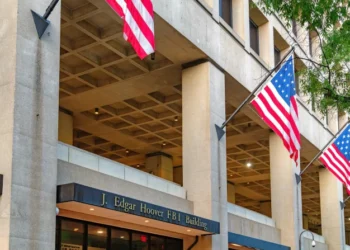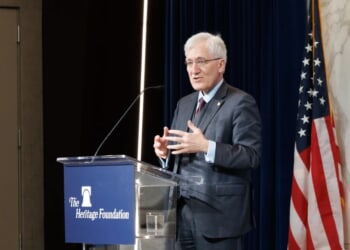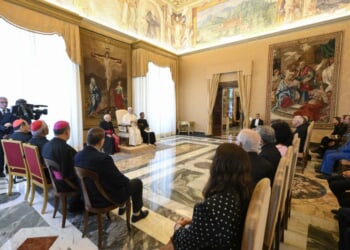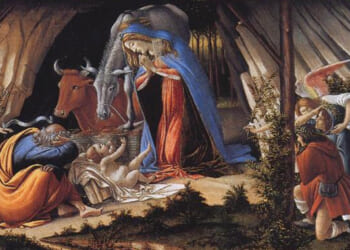We live in a culture pervaded by personal anxiety and social turbulence. Every time we turn on the television, we are met with advancing poverty, impending war, and blame from politicians. We see lots of adds for pharmaceuticals to help us address our ailments, whatever they are, including psychological ones. We see lots of “life hacks” that are supposed to make life easier; and we hear lots of counselors who are supposed to help us find inner peace. But if those things really worked, wouldn’t the hamster wheel eventually come to a halt? Is there any hope that we can exit the cycle of blaming others and medications and the self-help section at the local bookstore (or of YouTube)?
Learning and expressing gratitude, thankfulness, is a better foundation for finding the peace and happiness we all seek. This under-appreciated human virtue is a key that will help us wriggle free from what Fulton Sheen called the “confining straitjacket of the self.” It might be one of the most effective “life hacks.” Here are just a few key points to flesh out that truth and explain why that is.
Why Gratitude
At the most basic level, gratitude takes us out of ourselves. When we pause to examine our lives and the world around us, we realize that the food we consume each day was produced and stocked by someone, somewhere. Even the plate served at a restaurant is the result of many steps in a supply chain completed by many people doing various jobs. The electricity and internet service we access in our homes are brought to us by people who showed up to work. We are the recipients of education because most teachers and administrators are driven by serving others and helping better human lives. Examples abound. It is helpful for our psychological and spiritual health if we see everything we have as a gift mediated through other persons.
The Response Gratitude Demands
Thinking about these things, even briefly, leads us to see that gratitude is also a great driver of action. When we are truly grateful, something wells up from within our spirits, a desire to share the gifts we have received.
If we have financial means, it is because we have benefited from others’ work in some way, and we can use those means to benefit more people. If we have been trained how to build quality products, we can provide them to others with integrity. If we have been given an abundance of time, we can spend it with our children, allowing them to know they are loved and supported. Again, any one of us could identify a thousand unique expressions of this same reality.
In the end, anything but gratitude and self-donation will keep us wrapped in the “straitjacket of the self.”
Biblical Evidence
The perfect expression of this reality is found in Jesus of Nazareth, specifically in two moments of His life and ministry. The first moment is when Jesus performed a miraculous healing and provided a lesson while on His way to Jerusalem. Ten lepers approached the traveling Messiah, begging for mercy. Jesus commanded them, “Go and show yourselves to the priests,” and they were cleansed of the leprosy as they went. Nine of them continued on their way. One returned, “and he fell on his face at Jesus’ feet, giving him thanks,” highlighting that gratitude is the most appropriate response to what Jesus has done for us (see Luke 17:11-19). We might also reasonably conclude from this biblical episode that gratitude brings a healing and peace that abides far below the surface level.
The second moment when we learn an important lesson from Jesus about gratitude is the night before He died. He gathered to eat the Passover meal with His twelve apostles, including the one who would betray Him, Judas. His first action was to wash their feet, an expression of gratitude and service. If any of us serve another person in true humility, we will be grateful that this person is helping us grow. Jesus knew that and acted it out.
After washing the apostles’ feet, they all reclined at table. When Jesus took both bread and wine in His sacred hands, the first thing He did was give thanks. He did so, even knowing His impending betrayal, trial, and death sentence. Are we able to see and appreciate the great benefits that have been granted to us, even amid the most horrific and desperate circumstances? Gratitude is the way.
There is much more besides, but these few brief points provide ample evidence to help us learn that gratitude is an essential, foundational habit for psychological and spiritual health and growth. This truth has been taught and practiced for centuries in the Christian Faith, especially in great Christian leaders from the early martyrs, to medieval kings, to mystics and spiritual masters. In recent generations, this understanding has impacted secular culture as, for example, agnostics and skeptics have come to tout the benefits of keeping gratitude journals. Now, if we will simply live out the truth we have come to know, we can build a peaceful and happy life, helping others grow along the way.












